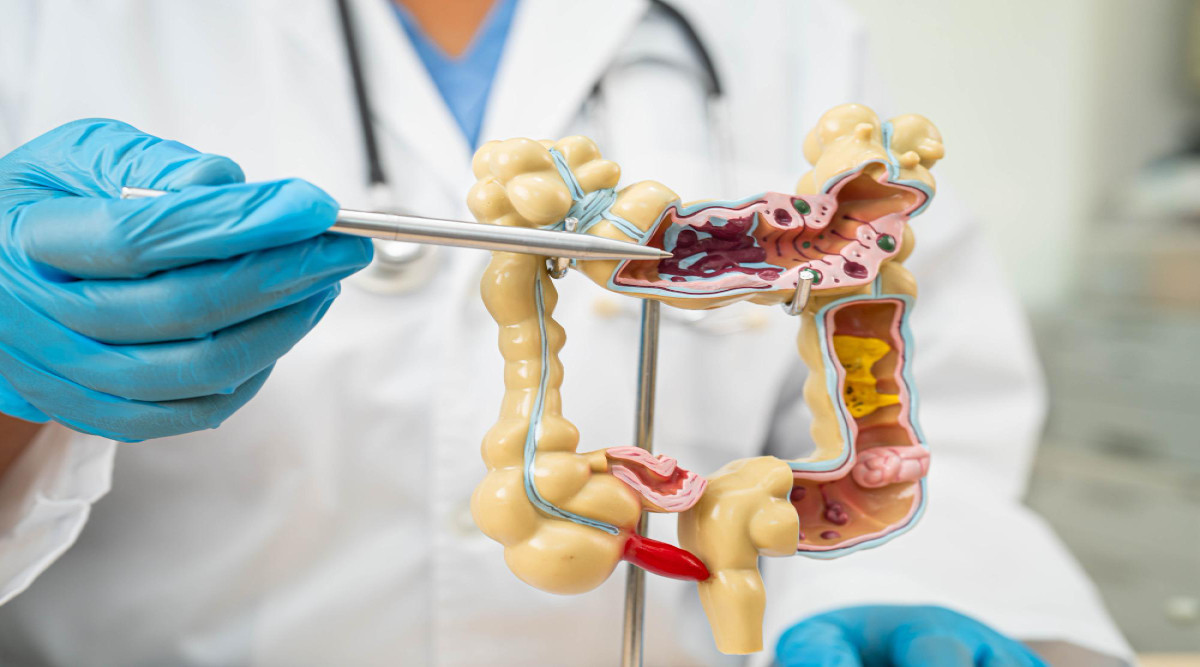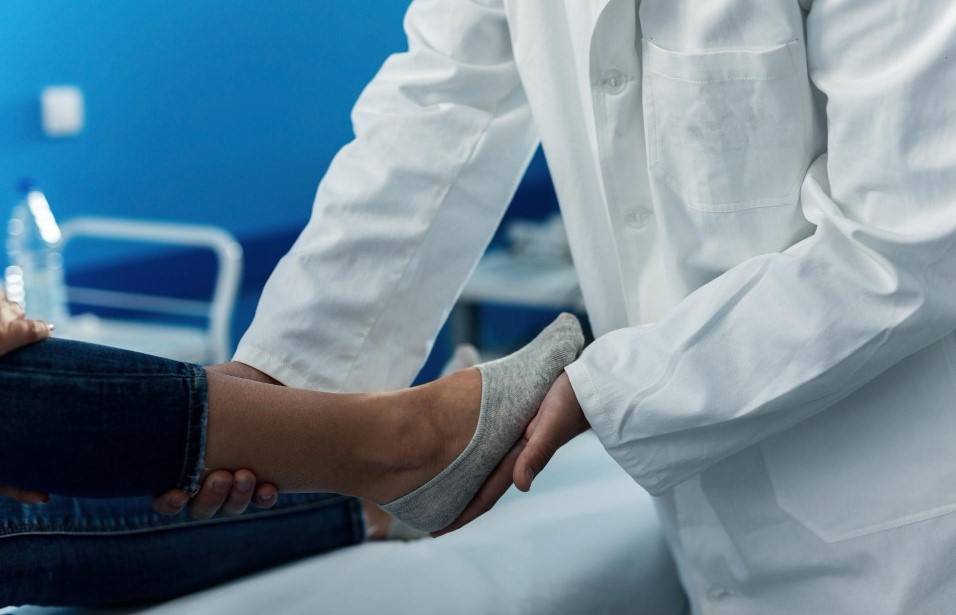
Meta description: Colon cancer rates are increasing among young adults. Learn the causes, risks, symptoms, and prevention strategies for early-onset colorectal cancer
Introduction
The third most common cancer worldwide and the second leading cause of cancer-related deaths. Colon cancer, also known as colorectal cancer when it affects both the colon and rectum, has historically been viewed as a disease of older adults. For decades, medical guidelines focused on screening people over 50. But in recent years, a concerning trend has emerged: colon cancer rates in young adults are rising sharply in the United States.
According to the American Cancer Society (ACS), the rate of colorectal cancer among people under 50 has been increasing by about 1–2% per year since the mid-1990s. Then, in 2021, the US Preventive Services Task Force also lowered the recommended age to start screening for colon and rectal cancers from 50 to 45. Even more alarming, younger patients are more likely to be diagnosed with advanced-stage disease, making early detection and prevention critical.
This guide explores why colon cancer is affecting more young adults, the risks and symptoms to watch for, strategies for prevention, and the importance of early screening. As part of our commitment to supporting healthcare providers, DelonHealth offers specialized medical billing services to ensure practices can deliver life-saving screenings and treatments without the administrative burden of delayed or denied claims.
Understanding Colon Cancer
Colon cancer begins in the large intestine (colon), which is part of the digestive system. Most cases start as polyps—small growths on the inner lining of the colon or rectum. While most polyps are harmless, some can develop into cancer over time if left untreated.
Colorectal cancer is categorized into stages based on how far it has grown and spread in the body. Understanding these stages—and their potential warning signs—can help with early detection and better outcomes.
Stage 0 (Carcinoma in situ)
- Description: Cancer cells are present only in the innermost lining of the colon or rectum. They have not spread deeper or beyond the colon wall.
- Possible Early Signs: Often no noticeable symptoms. In some cases, small amounts of blood may appear in the stool, detected only through screening tests like a colonoscopy.
Stage I
- Description: The tumor has grown into the deeper layers of the colon or rectum wall but has not spread to lymph nodes or distant organs.
- Possible Early Signs:
- Occasional blood in the stool
- Slight changes in bowel habits (mild constipation or diarrhea)
- Unexplained fatigue
Stage II
- Description: The tumor has grown through the wall of the colon or rectum and may have reached nearby tissues, but not the lymph nodes.
- Subcategories:
- IIA: Through the wall but not into nearby tissue
- IIB: Into nearby tissue but not lymph nodes
- IIC: Into nearby structures
- Possible Early Signs:
- Persistent change in bowel habits (more than a few weeks)
- Abdominal cramps or discomfort
- Unexplained weight loss
- Frequent bloating or feeling of incomplete bowel movements
Stage III
- Description: Cancer has spread to nearby lymph nodes but not to distant organs.
- Subcategories: IIIA, IIIB, IIIC based on lymph node involvement and tumor growth.
- Possible Early Signs:
- Blood in the stool (more visible and frequent)
- Significant abdominal pain
- Narrower stools than usual
- Fatigue and weakness due to anemia
Stage IV (Metastatic)
- Description: Cancer has spread to distant organs such as the liver, lungs, or other parts of the body.
- Subcategories:
- IVA: One distant organ or area
- IVB: More than one distant organ
- IVC: Spread to the abdominal lining (peritoneum)
- Possible Early Signs:
- Persistent, severe abdominal pain
- Noticeable lumps in the abdomen
- Chronic fatigue and weakness
- Shortness of breath (if spread to the lungs)
- Jaundice (if spread to the liver)
Understanding these stages is important because survival rates are much higher when the cancer is detected early. That’s why awareness and timely screening are essential, especially as more cases appear in younger adults.
The Rising Trend: Statistics and Research
The ACS estimates that in 2024 alone, about 106,590 new cases of colon cancer and 46,220 new cases of rectal cancer will be diagnosed in the U.S. Nearly 20% of these cases will occur in adults under 50—an age group once considered low-risk.
Key trends:
- Diagnosis at younger ages: Many patients are in their 20s, 30s, and early 40s.
- More advanced stages: Younger adults often present with stage 3 or 4 disease.
- Higher mortality rates: Delayed diagnosis can reduce treatment success.
Researchers are investigating potential causes, from dietary changes and sedentary lifestyles to gut microbiome alterations and environmental exposures. But while the exact reasons remain unclear, the urgency to educate and screen younger populations has never been greater.
Causes and Risk Factors for Early-Onset Colon Cancer
Multiple factors contribute to the increased risk of colon cancer in young adults.
1. Genetic and Hereditary Factors
- Lynch syndrome and familial adenomatous polyposis (FAP) significantly increase lifetime risk.
- Having a first-degree relative (parent, sibling) with colorectal cancer doubles or triples risk.
2. Lifestyle Factors
- Diet high in red and processed meats and low in fruits, vegetables, and fiber.
- Sedentary lifestyle with limited physical activity.
- Smoking and excessive alcohol consumption.
3. Medical Conditions
- Inflammatory bowel diseases such as Crohn’s disease or ulcerative colitis.
- Type 2 diabetes, which is linked to increased colorectal cancer risk.
4. Environmental and Other Factors
- Rising obesity rates among younger adults.
- Possible shifts in gut bacteria related to diet, antibiotics, and environmental changes.
Causes of Colon Cancer in Young Adults
While the exact cause of colon cancer is not fully understood, research shows that several factors can increase risk—especially in people under 50.
1. Genetic and Hereditary Factors
- Inherited Syndromes: Conditions like Lynch syndrome and Familial Adenomatous Polyposis (FAP) significantly raise lifetime risk.
- Family History: Having a parent, sibling, or child with colorectal cancer or advanced polyps can double or triple your risk.
2. Lifestyle and Dietary Habits
- Low-Fiber, High-Fat Diets: Diets high in red or processed meats and low in fiber are linked to higher cancer risk.
- Physical Inactivity: A sedentary lifestyle slows digestion and increases exposure of the colon lining to harmful substances.
- Alcohol and Smoking: Both are well-established risk factors for colorectal cancer.
3. Medical Conditions
- Inflammatory Bowel Disease (IBD): Chronic inflammation from Crohn’s disease or ulcerative colitis can trigger cell changes in the colon.
- Type 2 Diabetes: Linked to increased risk due to insulin resistance and related metabolic changes.
4. Environmental and Biological Changes
- Gut Microbiome Imbalance: Changes in gut bacteria may influence cancer development.
- Rising Obesity Rates: Excess body fat can promote inflammation and hormonal shifts that support tumor growth.
Early Signs of Colon Cancer
Colon cancer in young adults is often diagnosed late because symptoms may be mild or mistaken for other conditions.
1. Blood in Stool or Rectal Bleeding
Bright red blood or dark, tarry stools can be a warning sign. Even small amounts should be checked by a doctor.
2. Persistent Changes in Bowel Habits
Ongoing diarrhea, constipation, narrow stools, or feeling of incomplete evacuation after bowel movements.
3. Abdominal Pain or Discomfort
Cramping, bloating, or persistent stomach pain that doesn’t resolve with over-the-counter remedies.
4. Unexplained Weight Loss
Sudden weight loss without changes in diet or exercise can signal underlying disease.
5. Fatigue and Weakness
Chronic tiredness caused by anemia from hidden internal bleeding.
Why These Signs Are Overlooked:
In younger adults, symptoms are often attributed to hemorrhoids, stress, IBS, or dietary issues. This delay in diagnosis can lead to more advanced disease at the time of detection—making awareness and early evaluation essential.
DelonHealth works with U.S. clinics and gastroenterology practices to ensure that screening services are billed accurately and reimbursed quickly, enabling providers to focus on patient care rather than administrative delays.
Prevention Strategies
Diet and Nutrition
- Eat a fiber-rich diet (whole grains, fruits, vegetables).
- Limit processed and red meats.
- Maintain healthy body weight.
Lifestyle Changes
- Engage in regular exercise (150 minutes per week).
- Quit smoking and limit alcohol.
Medical Preventive Measures
- Regular check-ups and screenings.
- Genetic counseling for high-risk individuals.
Treatment Options
Treatment depends on cancer stage and may include:
- Surgery to remove tumors.
- Chemotherapy to kill cancer cells.
- Radiation therapy for rectal cancers.
- Targeted therapy and immunotherapy for advanced cases.
Living with and Beyond Colon Cancer
Survivorship often involves:
- Ongoing follow-up tests.
- Dietary adjustments.
- Mental health support.
- Participation in survivorship programs.
Why early detection matters: Many early-stage cases of colorectal cancer have no symptoms at all, making regular screening, such as colonoscopies, essential, especially for people over 45 or those with a family history.
The Role of Advocacy and Support Organizations
Conclusion
The rising rates of colon cancer among young adults underscore the need for awareness, prevention, and early detection. While researchers work to understand the causes, individuals can take proactive steps: know the symptoms, get screened early, and adopt a healthy lifestyle.
The rising rates of colon cancer among young adults underscore the need for awareness, prevention, and early detection. While researchers work to understand the causes, individuals can take proactive steps: know the symptoms, get screened early, and adopt a healthy lifestyle.
At DelonHealth, we partner with healthcare providers across the U.S. to streamline medical billing for cancer screenings, diagnostic procedures, and treatments. Our goal is to help clinics improve cash flow, reduce claim denials, and focus on delivering exceptional patient care
📩 Learn how we can support your practice: www.delonhealth.com
📧 Email: info@delonhealth.com









